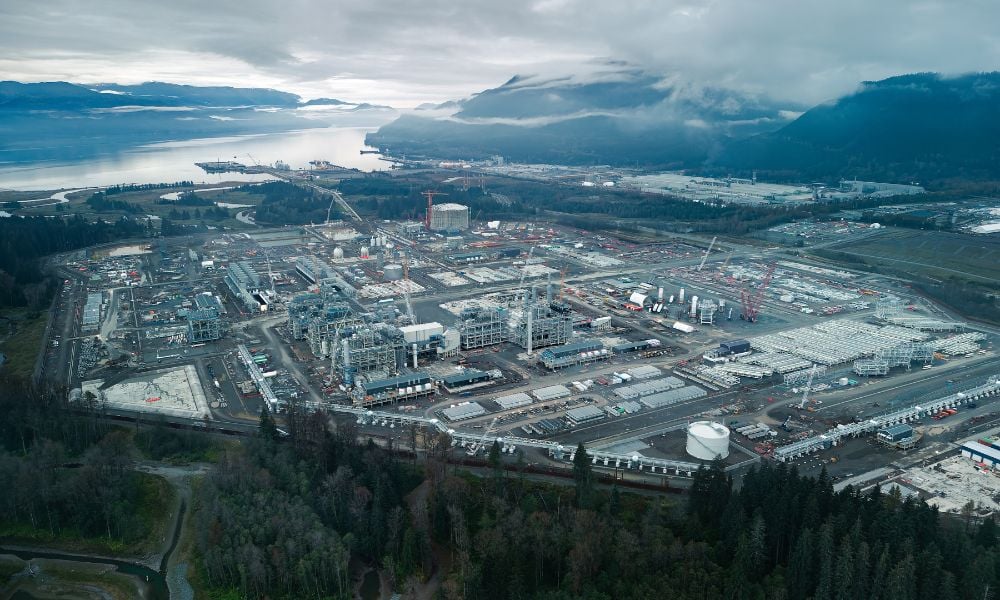Baie-Comeau eyed for LNG export terminal to Europe as officials weigh economic and environmental risks

A Norwegian energy company is proposing a liquefied natural gas (LNG) export facility in Baie-Comeau, Quebec.
The project positions the province as a potential new hub for energy exports to Europe, while raising questions about environmental risk, regulatory exemptions, and long-term feasibility.
According to The Globe and Mail, Marinvest Energy Canada—the Canadian arm of Norway’s Marinvest Energy AS—plans to build a liquefaction plant, marine export terminal, and floating offshore platforms along Quebec’s north shore of the St. Lawrence River.
A pipeline stretching several hundred kilometres would connect the facility to TC Energy Corp.’s Canadian Mainline, which carries natural gas from Western Canada to Eastern Canada and into the US.
Chief operating officer Greg Cano stated in an email to BNN Bloomberg that “there is a strong business case” for LNG exports from Quebec and that the province is “strategically well-positioned” to help diversify Canadian natural gas markets beyond the United States.
He confirmed the project is in “a very early stage” and that current focus is on stakeholder engagement, including with First Nations communities.
Premier François Legault confirmed to reporters in Sept-Îles that his government had met with the project’s proponents.
The premier noted that the proposal is “very preliminary” and said the government’s support would depend on economic returns: “If it pays off for Quebecers, we’ll look at it. If it doesn’t pay off for Quebecers, we won’t look at it.”
Le Devoir, which first revealed the project’s details, reported that Marinvest’s Canadian subsidiary registered in Quebec last month.
The company has no local employees and lists Cano as its sole shareholder, based in Calgary.
The company’s website does not disclose leadership details or past project experience.
Marinvest has retained four lobbyists from the firm National, according to BNN Bloomberg.
Two of them are listed in Quebec’s registry, and another disclosed contact with Invest in Canada officials in May.
A fourth met with Conservative Leader Pierre Poilievre and Quebec MP Pierre Paul-Hus in June.
Greenpeace Canada expressed concern about the project’s environmental and financial implications.
In a statement to BNN Bloomberg, senior energy strategist Keith Stewart said, “There is no way that a fossil fuel project with so little consultation and such a weak business case should be on Mark Carney’s list of projects that can bypass environmental laws.”
He also told The Globe and Mail that Marinvest “wouldn’t have the money for a project like this” and suggested the firm is seeking government backing before raising funds.
Baie-Comeau Port Management Corp. chief executive Karine Otis told The Globe and Mail that Marinvest reached out to the port authority less than two months ago.
Otis stated that LNG was not previously part of the port’s strategy, but said the project may be viable if it uses shared infrastructure and limits environmental impacts.
“It’s a matter of, is this project feasible financially? Is it viable? Is it needed for our governmental authorities, and is it acceptable?” she said.
Marcel Furlong, prefect of the regional municipality that includes Baie-Comeau, said discussions with Marinvest began in early 2025.
He told BNN Bloomberg that the municipality has not yet taken a position and is awaiting more information, including environmental assessments.
The federal government recently passed legislation aimed at expediting permitting for so-called “nation-building projects,” which could allow this proposal to bypass traditional environmental reviews.
Energy Minister Tim Hodgson told reporters in Alberta that if Quebec wishes to advance the project, “I’m sure they’ll bring it forward and it will be evaluated.”
This is not Quebec’s first LNG proposal. In 2021, the provincial government rejected GNL Quebec’s $9bn Saguenay LNG project.
Quebec’s environmental review agency concluded that the project posed risks to the beluga whale population, failed to demonstrate environmental benefits, and lacked public support.
The federal government also rejected the project in 2022 following a review by the Impact Assessment Agency of Canada, which cited increased emissions and negative effects on nearby Innu communities.
Legault has since stated that Quebecers may be more open to fossil-fuel projects due to the ongoing trade tensions with the United States, as reported by CBC News.



